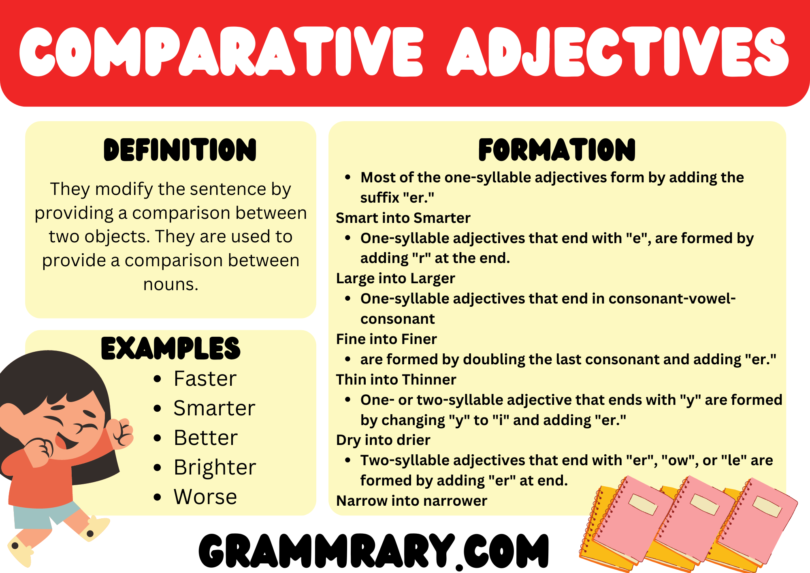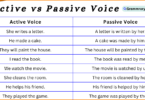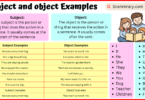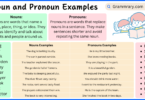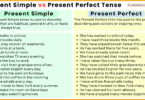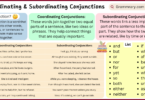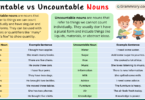Older, Faster, Better, Louder, Slower. You may use these words a lot in your daily language. What are these? These are Comparative Adjectives, a Type of Adjectives in English Grammar. Today, we will discuss these in detail. All the types are equally important, exclamatory adjectives express strong emotions, and Numeral Adjectives show the quantity. Similarly, Comparative Adjective compare nouns. Explore the list of adjectives.
What are Comparative Adjectives?
They modify the sentence by providing a comparison between two objects. Examples include larger, bigger, smaller, faster, and higher. They are used to provide a comparison between nouns.
The general structure to use in a sentence is:
Noun (subject) + verb + comparative adjective + than + object.
The Comparative Adjectives Examples:
- Faster
- Brighter
- More confident
- Smarter
- Better
- Worse
Comparative Adjectives Example Sentences:
- His sister is more intelligent than him.
- This one is looking more beautiful than the other.
- His bike is faster than yours.
- This food is tastier than the one you cooked yesterday.
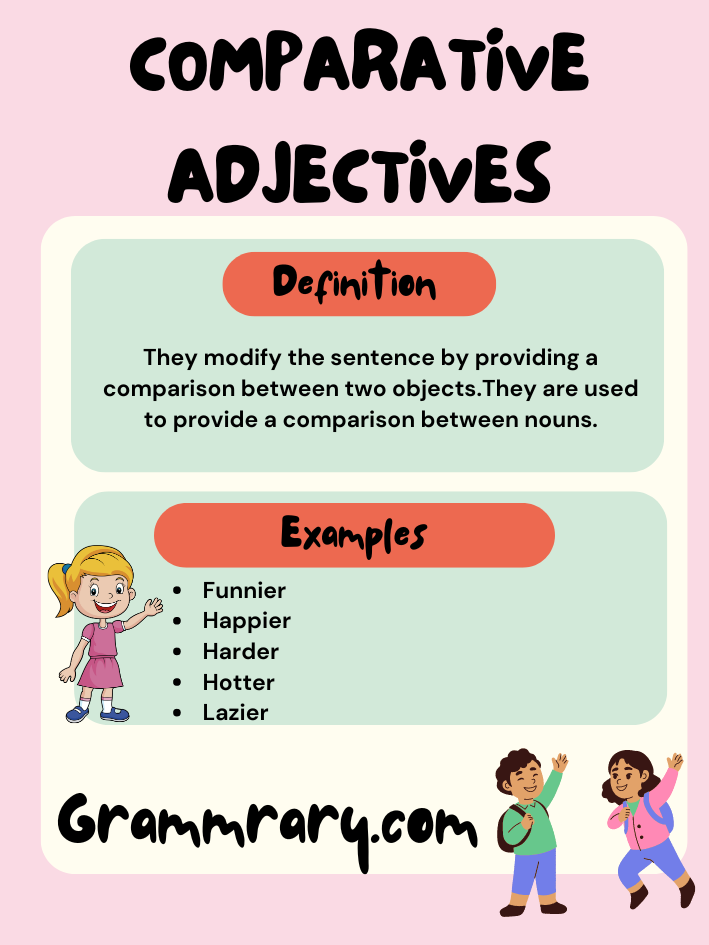
Comparative adjectives definition and examples
Formation of Comparative Adjective:
One-syllable adjectives
Most of them form by adding the suffix “er.”
| Standard form | Comparative form |
| Bright | Brighter |
| Smart | Smarter |
2 One-syllable adjectives that end with “e”
Add “r” at the end.
| Standard form | Comparative form |
| Large | larger |
| Fine | finer |
3 One-syllable adjectives ending in consonant-vowel-consonant
In this case, double the last consonant and add “er.”
| Standard form | Comparative form |
| Thin | Thinner |
| Big | Bigger |
4 One- or two-syllable adjective that ends with “y”
Change “y” to “i” and add “er.”
| Standard form | Comparative form |
| likely | likelier |
| dry | drier |
5- Two-syllable adjectives that end with “er”, “ow”, or “le”
Add “er” at end for those ending with “er” or “ow” and add “r” for the adjectives that end with “le.”
| Standard form | Comparative form |
| Shallow | Shallower |
| Bitter | Bitterer |
| Narrow | Narrower |
Did you remember what we studied in the irregular plural nouns? They don’t follow a specific pattern of pluralization. Similar is a case of irregular comparative adjective, it doesn’t follow a specific pattern for the formation.
Irregular comparative adjectives
Some don’t follow the above rules. Examples are.
| Standard form | Comparative form |
| good | better |
| many | more |
| bad | worse |
A to Z List of comparative adjectives:
- Bigger
- Colder
- Faster
- Friendlier
- Funnier
- Happier
- Harder
- Hotter
- Lazier
- Luckier
- More beautiful
- More comfortable
- More expensive
- More helpful
- More interesting
- More patient
- More powerful
- More successful
- Narrower
- Prettier
- Quieter
- Richer
- Shorter
- Simpler
- Smarter
- Stronger
- Sweeter
- Taller
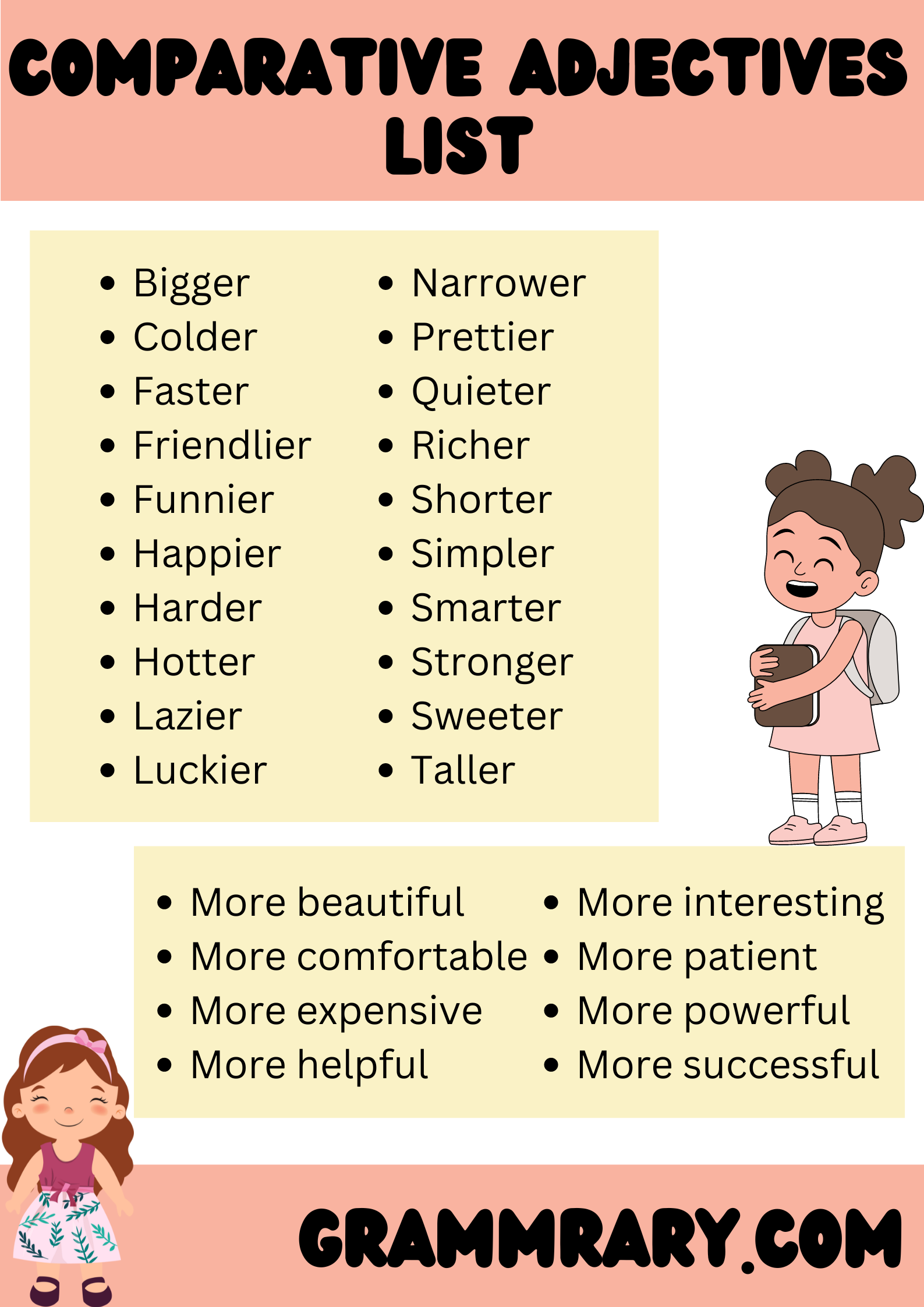
Comparative Adjectives List
Comparative Adjectives Worksheet with Answers:
1- Indicate the comparative form.
- Big
- Bigger
- Biggest
2- Indicate the comparative form.
- Small
- Smaller
- Smallest
3- Indicate the comparative form.
- Good
- Better
- Best
4- Indicate the comparative form.
- Many
- More
- Most
5- Indicate the comparative form.
- More helpful
- Most helpful
- None
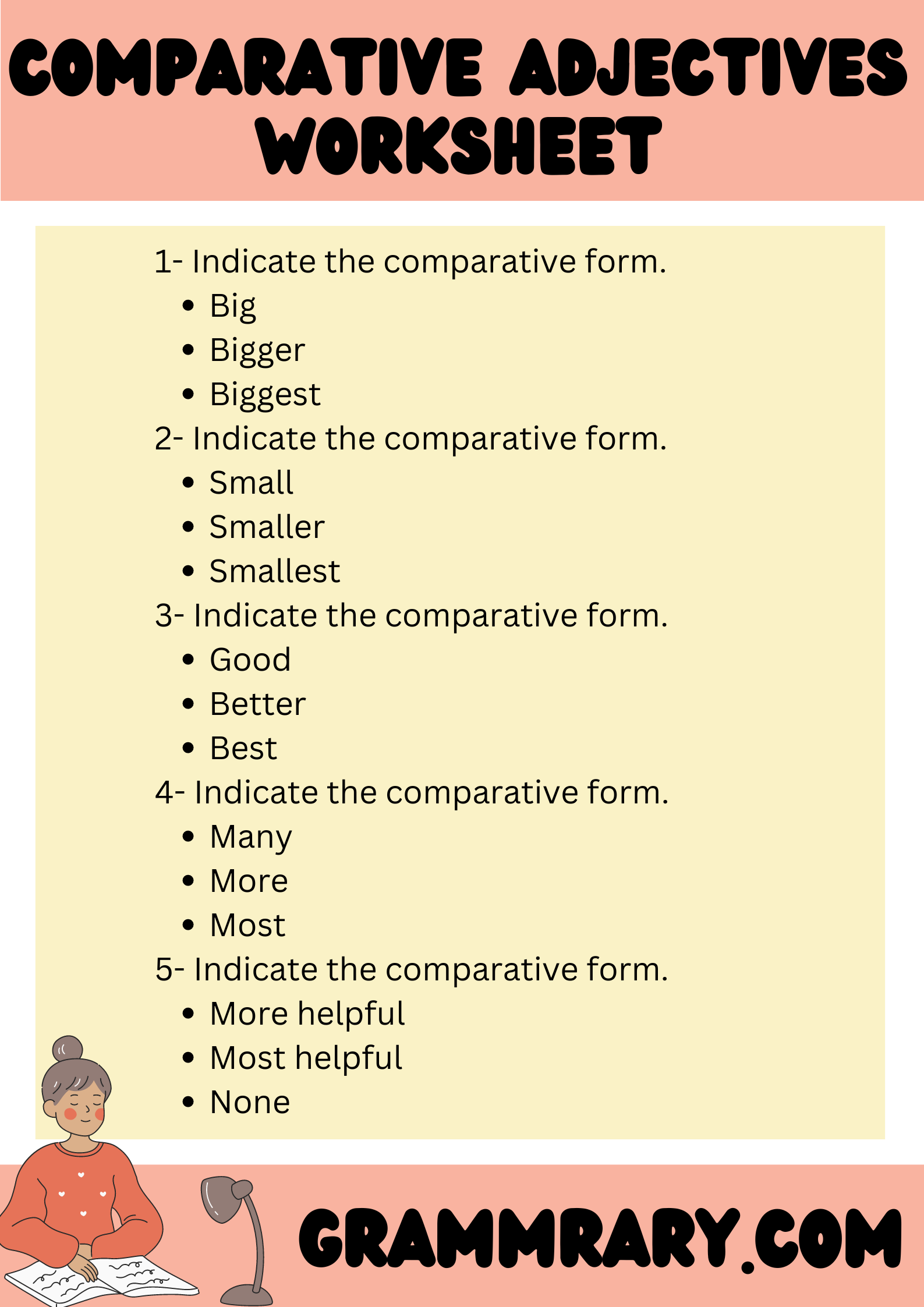
Worksheet with Answer Key
So, today we learnt the role of comparative adjectives in English Grammar and how they modify the sentences. But let’s solve a practice exercise of Types of Pronouns and Degree Adverbs. Parts of Speech play the most important role in the English Language, but don’t forget Figures of Speech, and how they beautify the English Language!

